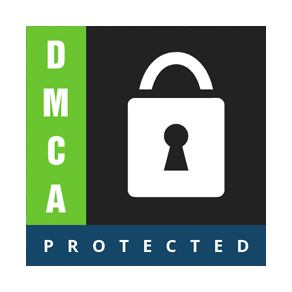Yes, you can invest in real estate even with a small budget. Many people believe that real estate is only for the wealthy, but that’s not true. Today, with smarter strategies and new platforms, even beginners with limited funds can enter the property market. You don’t need thousands in cash to get started—just the right approach and knowledge.
This blog will explore practical, low-budget real estate investment strategies and explain how to start smart with minimal capital.
Why Real Estate is Still a Great Investment Option
Long-Term Appreciation
Real estate has consistently grown in value over time. Even small investments today can grow into big returns in the future.
Passive Income Opportunities
Owning rental property or investing through platforms can generate monthly income, making real estate a popular choice for building wealth over time.
Diversification Benefits
Investing in real estate can help diversify your portfolio and reduce your financial risk by spreading investments across different asset types.
Low-Budget Real Estate Investment Strategies
1. Real Estate Investment Trusts (REITs)
REITs allow you to invest in real estate without owning property. These trusts own and manage portfolios of properties. You can buy REIT shares just like stocks.
Key Benefits:
- Start with as little as $10 or $100
- Earn dividends from rental income
- Easy to buy/sell on public markets

2. House Hacking
House hacking means buying a property, living in one part, and renting out the rest (e.g., a duplex or triplex).
How It Helps:
- Tenants help pay the mortgage
- Reduces your own living costs
- Qualifies you for owner-occupied loan programs
3. Real Estate Crowdfunding Platforms
Sites like Fundrise or RealtyMogul allow you to invest small amounts into large real estate projects.
Pros:
- Low minimum investment (as low as $10)
- Access to commercial properties
- Fully passive investment
4. Wholesaling Real Estate
Wholesaling involves finding undervalued properties, putting them under contract, and selling the contract to another investor for a fee.
What You Need:
- Negotiation skills
- Market knowledge
- Little or no upfront money
5. Partnering with Other Investors
You can team up with friends, family, or investor groups to pool money and invest in properties together.
Why It Works:
- Shares costs and responsibilities
- Helps you learn from others
- Reduces individual financial risk
Financing Options for Small-Budget Investors
1. FHA Loans
Federal Housing Administration (FHA) loans allow you to buy property with as little as 3.5% down.
2. VA and USDA Loans
If you’re a veteran or buying in a rural area, you may qualify for zero-down mortgage options through VA or USDA loans.
3. Seller Financing
Some sellers offer financing directly to buyers. This removes banks from the process and may allow for smaller down payments.

Mistakes to Avoid When Investing on a Small Budget
Overleveraging
Avoid borrowing more than you can afford to repay. Overleveraging can turn a small investment into a big financial problem.
Skipping Due Diligence
Always research the property, neighbourhood, and local market. Even with a low budget, due diligence is key to success.
Chasing High Returns Too Quickly
Be patient. Real estate builds wealth slowly over time. Don’t fall for risky promises of fast, unrealistic returns.
How to Start Investing Today
Step 1: Set Your Investment Goal
Do you want monthly income or long-term appreciation? Knowing your goal helps you pick the right strategy.
Step 2: Save a Small Fund
Even $1,000–$5,000 can open doors to REITs, crowdfunding, or help you start wholesaling.
Step 3: Learn the Basics
Read blogs, watch videos, and take free courses on real estate investing. Knowledge is your most valuable investment tool.
Step 4: Choose a Strategy
Pick one strategy that fits your budget and comfort level—don’t try everything at once. Focus helps you grow smarter.
Step 5: Take Action
Once you’re ready, start small. Whether it’s buying REITs or finding a wholesale deal, action turns plans into profit.
Real-Life Example: How Sarah Started with $500
Sarah was a full-time teacher who wanted to start investing in real estate. She didn’t have a big budget, so she started by putting $500 into a REIT platform. After six months, she reinvested her dividends and added another $1,000 from her savings.
Today, she earns passive income and plans to use those returns as a down payment on a small duplex in two years. Her story shows how small beginnings can grow into major opportunities.
Conclusion: Small Budget, Big Potential
You don’t need to be rich to invest in real estate. With the right tools, mindset, and strategy, anyone can get started—even on a tight budget. Whether you choose REITs, house hacking, or crowdfunding, there are many ways to grow your wealth gradually and responsibly.
So if you’ve been waiting for the “right” time or the “perfect” amount of money, stop. Start where you are—with what you have. Your real estate journey can begin today.
Read more 10 Steps to Buying a House
FAQ’s
Reputable platforms are generally safe, but always research and understand risks before investing in any real estate crowdfunding project.
No, you can invest through REITs, crowdfunding, or partnerships without owning physical property yourself.
Yes, FHA loans offer low down payments (as low as 3.5%), making property ownership more accessible for budget-conscious buyers.






